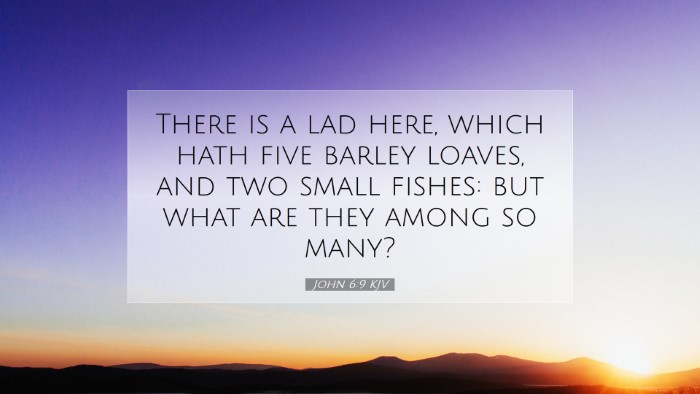Old Testament
Genesis Exodus Leviticus Numbers Deuteronomy Joshua Judges Ruth 1 Samuel 2 Samuel 1 Kings 2 Kings 1 Chronicles 2 Chronicles Ezra Nehemiah Esther Job Psalms Proverbs Ecclesiastes Song of Solomon Isaiah Jeremiah Lamentations Ezekiel Daniel Hosea Joel Amos Obadiah Jonah Micah Nahum Habakkuk Zephaniah Haggai Zechariah MalachiVerse
John 6:1 John 6:2 John 6:3 John 6:4 John 6:5 John 6:6 John 6:7 John 6:8 John 6:9 John 6:10 John 6:11 John 6:12 John 6:13 John 6:14 John 6:15 John 6:16 John 6:17 John 6:18 John 6:19 John 6:20 John 6:21 John 6:22 John 6:23 John 6:24 John 6:25 John 6:26 John 6:27 John 6:28 John 6:29 John 6:30 John 6:31 John 6:32 John 6:33 John 6:34 John 6:35 John 6:36 John 6:37 John 6:38 John 6:39 John 6:40 John 6:41 John 6:42 John 6:43 John 6:44 John 6:45 John 6:46 John 6:47 John 6:48 John 6:49 John 6:50 John 6:51 John 6:52 John 6:53 John 6:54 John 6:55 John 6:56 John 6:57 John 6:58 John 6:59 John 6:60 John 6:61 John 6:62 John 6:63 John 6:64 John 6:65 John 6:66 John 6:67 John 6:68 John 6:69 John 6:70 John 6:71

